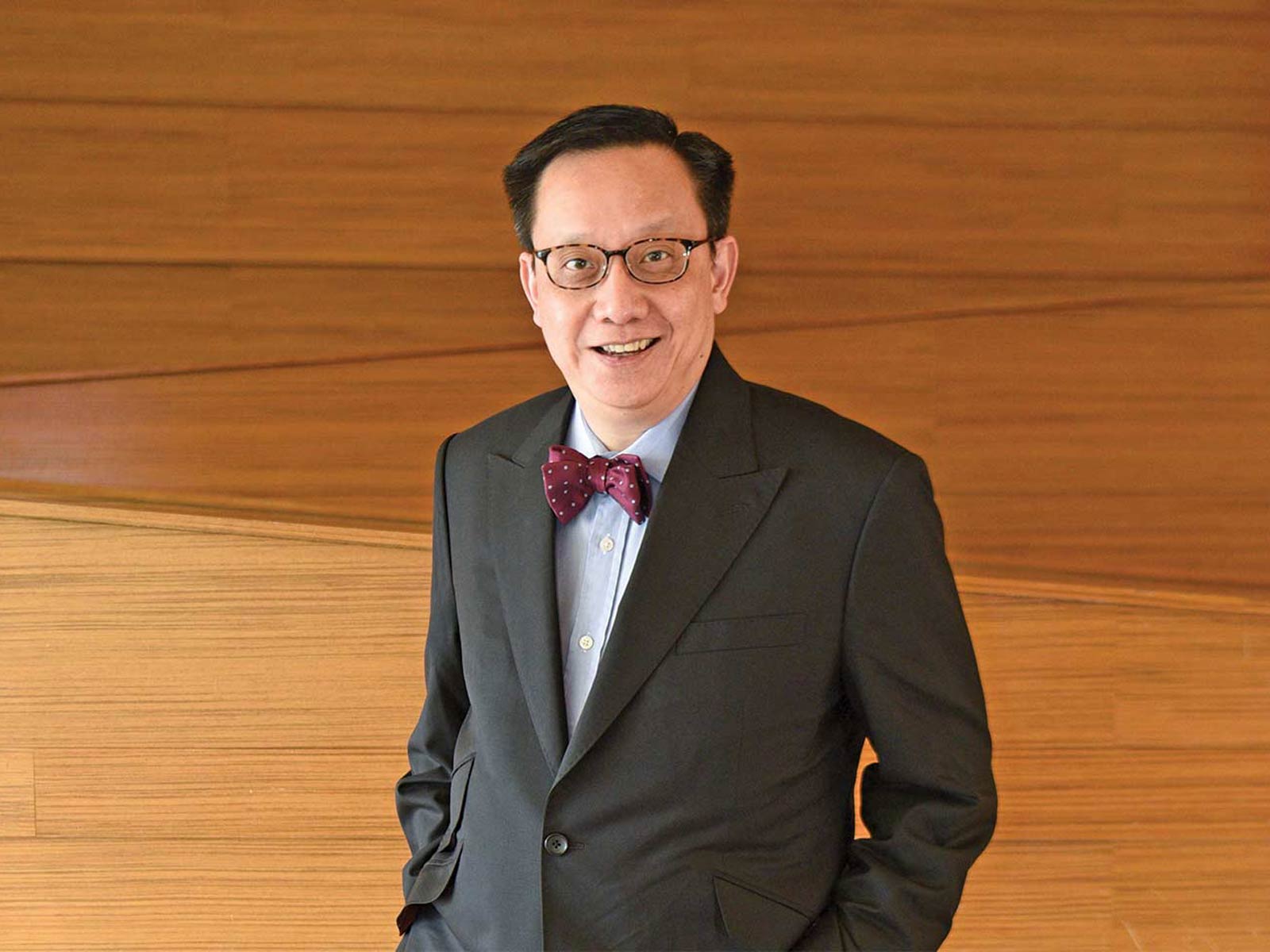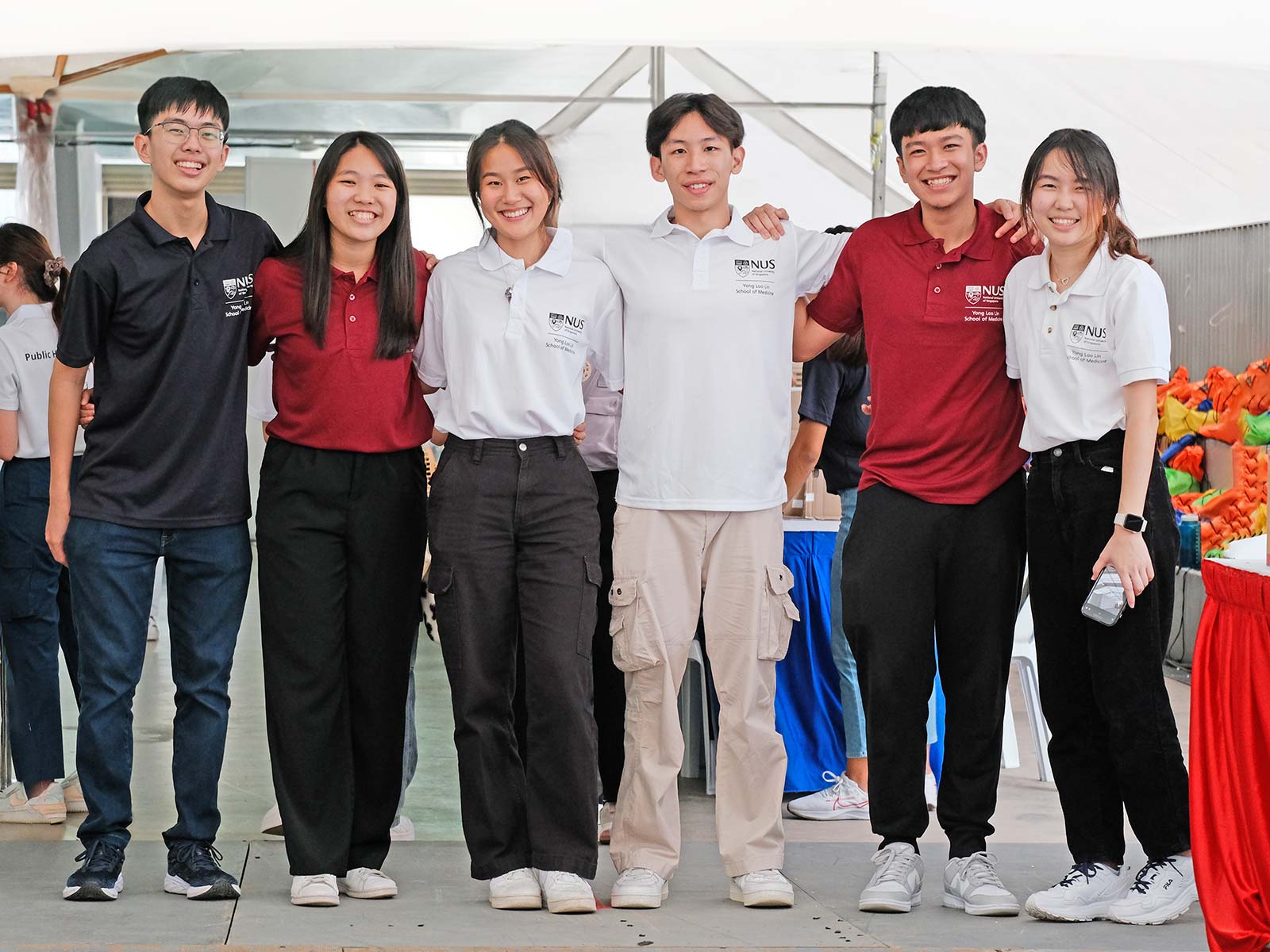
Dean’s Message
Nov 2023
DEAN’S MESSAGE

As the practice of Medicine pivots from the traditional treatment of diseases to incorporate their prevention, early detection and intervention, researchers around the world have identified five areas in the world where local populations comprise a very high number of centenarians.
In these so-called blue zones (a term expanded by Dan Buettner, a National Geographic Explorer and Fellow in 2004 for Ikaria in Greece, Okinawa in Japan, the Ogliastra region, Sardinia, Loma Linda, California and the Nicoya Peninsula in Costa Rica), the people live longer, enjoy a high quality of life and good health in their twilight years. The very healthy and active senior citizens in these five places shared common lifestyle traits: low-protein diets heavy in vegetables, fruits, nuts, fish, healthy fats and low in meat products; strong social networks, regular, low-intensity physical activity and strong life purpose or religious faith.
I believe Singapore could become a blue zone if we can increase the Healthy Life Expectancy or Healthspan of Singaporeans by five years by 2050 through modifications to our lifestyles and diet. Towards this end, NUS Medicine, together with the Ministry of Health, the Housing Development Board, and the National University Health System, has embarked on a first-of-its-kind multi stakeholder collaboration with the public, private and social sectors to form the Health District @ Queenstown.
Mirroring Singapore’s projected demographics by the year 2030, the population of Queenstown, is expected to be 100,000 in 2026, with 21% of residents over the age of 65 years and 80% living in HDB apartments. As such, it is chosen as the pilot site for putting in place sustainable programmes to help residents lead healthier lives. The Health District @ Queenstown will provide a key platform for translating healthcare education, research, and innovation, into practical solutions to health-related issues, providing a supportive and conducive environment for residents to enjoy a good quality of life.
Health and well-being are more than just caring for the sick. To help people stay healthy as long as they live, and better care for them when they are ill, we need to look beyond the traditional confines of medicine and science and tap on the experiences and knowledge of blue zone populations.”
Aligning to this mission of increasing health span, the Healthy Longevity Translational Research Programme at NUS Medicine seeks to improve health by understanding the biology of ageing, as well as developing and testing interventions to prolong the healthy years of individuals in Singapore.
Hence, by investing and optimising health and human potential in early life, and encouraging healthier ageing across the life course, there will be a far-reaching impact on our nation’s overall health, healthcare system and economy.
Another initiative that will also have a positive impact on Singaporeans’ health and well-being was also launched in August, here at NUS. It brings together about 870 Medicine, Nursing, Pharmacy and Dentistry first-year students in five specially-designed courses as part of their learning journey.
A key content pillar in the Common Curriculum is the Social and Behavioural Determinants of Health pillar, which will educate healthcare students on the practical, social and emotional needs that affect individuals’ health and well-being in communities.
Students will also participate in interdisciplinary experiential learning through the Longitudinal Patient Experience, where teams of students from various healthcare disciplines will visit patients in their homes and living environments continually for one year. This immersive learning journey provides students with opportunities to provide holistic care for their patients, while fostering empathy and resilience.
In conjunction with the new Common Curriculum for Healthcare Professional Education, NUS Medicine has also enhanced its curriculum for Medicine undergraduates by implementing a Minor that delves into Artificial Intelligence (AI) and Biomedical Informatics, to better prepare students for the new era of AI-driven digital medicine.
Students from other NUS faculties, schools and colleges will also have the opportunity to acquire knowledge about the workings of modern healthcare systems through a new Minor in Integrative Health.
Health and well-being are more than just caring for the sick. To help people stay healthy as long as they live, and better care for them when they are ill, we need to look beyond the traditional confines of medicine and science and tap on the experiences and knowledge of blue zone populations. Live to 100? That is already reality for an increasing number of Singaporeans. Our holy grail is to have a nation whose citizens age actively and healthily into their centenaries.

More from this issue



